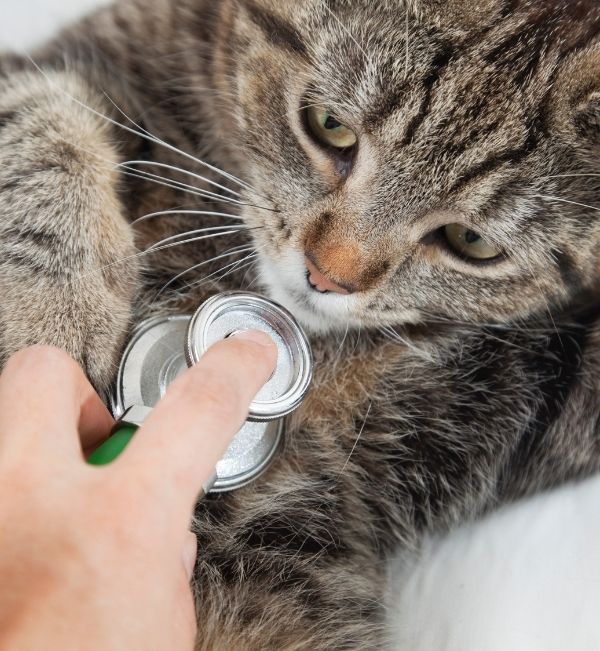Veterinary Services
Pet Preventative Care
Allowing Village Vet Animal Clinic to examine your pet annually and keep the vaccinations you need up to date can help your pet have a longer, healthier life.
Pet Preventative Care in Broken Arrow
We want to be your partner in your pet’s care. Like any relationship, communication is important, and we hope you find value in your pet’s annual exams and check-ups. Bringing your pet to Village Vet Animal Clinic for physical examinations is crucial to his or her health. We offer thorough physical examinations so that we can detect any potential problems before they become major problems. Many pet health problems can be avoided through regular physical exams, which is why we recommend that your pet has at least two examinations with our staff per year. While physical exams are critical to animal health, you can do your part too by being a vigilant pet owner. If you notice any irregularities with your pet, take detailed notes and bring him or her to Village Vet Animal Clinic for an examination.
What exactly does a physical exam include? Some things you can’t see, feel, touch, or hear without special tests and equipment, but many times you can gain a lot of information about your pet through simple observation. In a physical exam, your veterinarian looks for anything abnormal. What is considered normal is a combination of what is normal for the breed and what is normal for your specific unique pet. Every pet is a little bit different, just like every human is different. Once the veterinarian does the basic physical exam, any areas of concern will be given more attention.
Pet Vaccinations
Many of the diseases that can affect dogs and cats are preventable through proper pet vaccinations. From your first visit to Village Vet Animal Clinic, we’ll make sure your pet is up-to-date on their vaccines and put on a schedule that makes sure they continue to stay up-to-date.
Depending on your pet’s age, medical history, lifestyle, and environment, our Broken Arrow veterinarians will discuss the best course of action in regard to your pet’s vaccine schedule. You can bring your cat or dog in as early as eight weeks for his or her first round of vaccines.
You’ll need to bring your pet in every few weeks over the course of about three months for boosters after he/she receives the initial vaccines. Once your pet finishes the initial vaccine series, he/she will receive boosters every 1 to 3 years, depending on the vaccine and lifestyle of your fur-baby.
Vaccines and Side Effects
You may worry about the safety of vaccines for your pets. Most pets don’t experience any side effects. Possible side effects vary based on the vaccination, but most often are mild and may include fatigue, fever, and/or hives. Our veterinarians at Village Vet Animal Clinic screen your pet thoroughly to ensure the vaccines are safe for your pets. Exams are recommended annually for healthy adult pets and every 6 months for pets over the age of 9 years. Pets may rarely have life-threatening reactions to vaccines. In a majority of cases, the benefits of the vaccine far outweigh the risks, but our veterinarians are ready to help you make the best decision for your pet.
Feline Vaccinations
The core vaccines for cats include panleukopenia (feline distemper), feline herpesvirus type I, feline calicivirus, and rabies. These vaccines protect your kitty from serious health issues. Depending on your pet’s lifestyle, you may also want to get your cat vaccinated for feline leukemia virus. During your feline’s visit, we’ll discuss his/her lifestyle and determine which vaccines he or she should have.
Canine Vaccinations
Core vaccinations for dogs include Canine Distemper, Parvovirus, Hepatitis, Bordetella, Lepto, and Rabies. By law, dogs must have a rabies vaccination (starting at 12-16 weeks) and receive boosters every three years. We’ll discuss your dog’s risk and determine if he or she should also receive the Canine Influenza, Leptospira bacteria, and/or Lyme vaccine, depending on your pup’s lifestyle.

